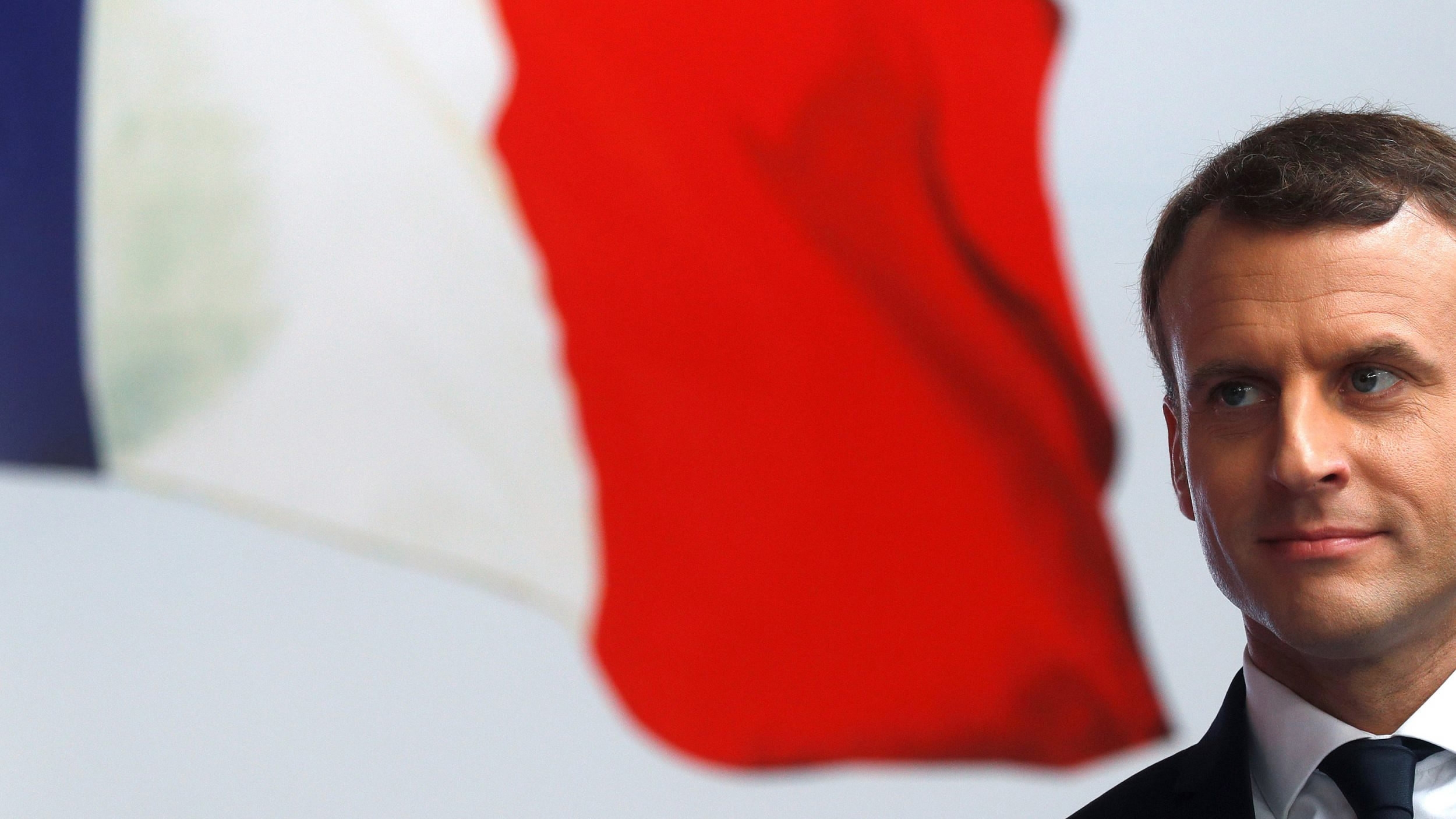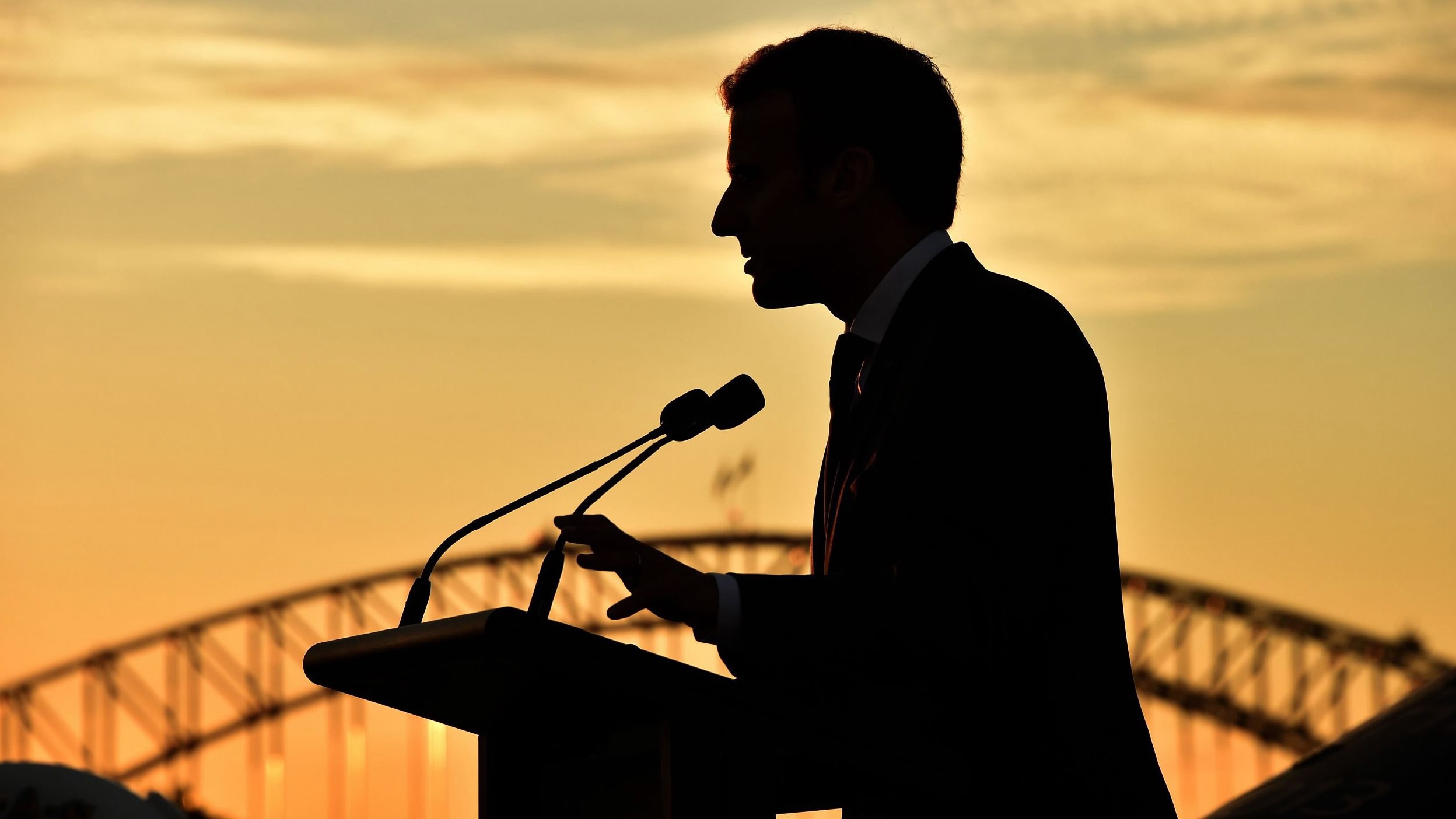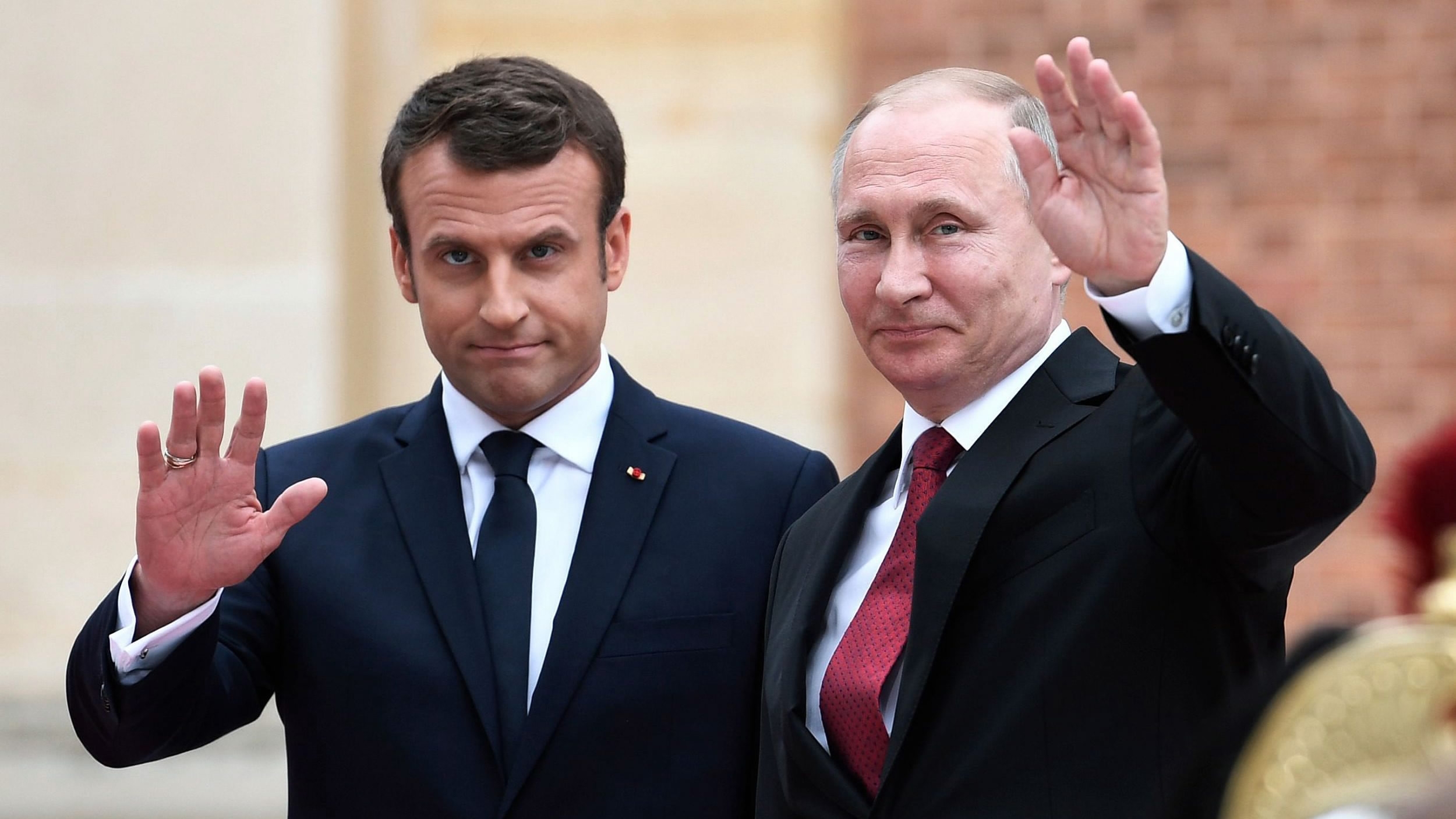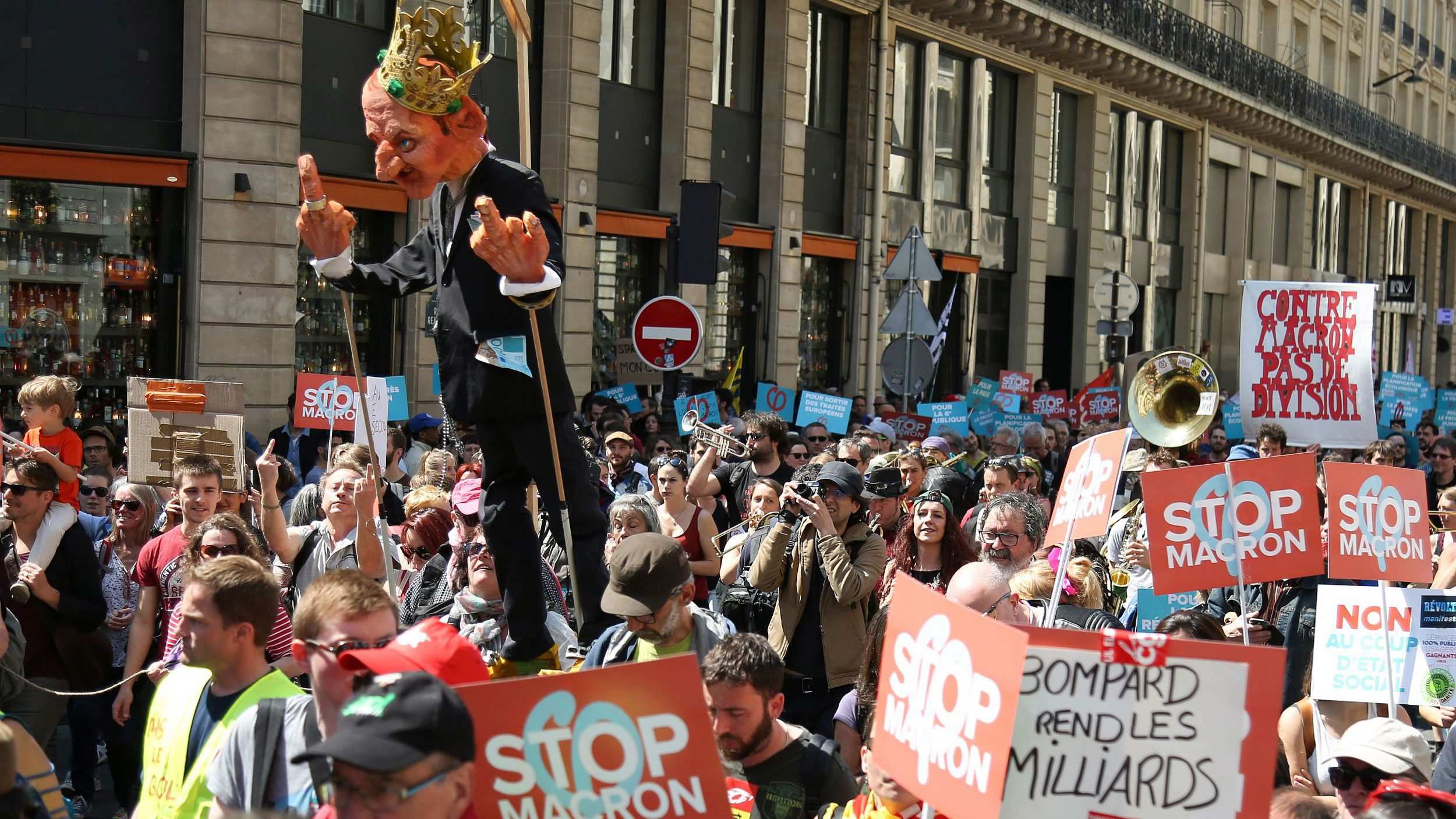
Politics
17:31, 07-May-2018
Macron one year on: Hit abroad, questions at home
By John Goodrich

One year after his election as French president, polling suggests approval for Emmanuel Macron's activity on the world stage but lingering resistance to his domestic agenda.
On May 7 2017, Macron defeated far-right leader Marine Le Pen to win the presidency with a promise of a "neither left nor right" policy approach and a pledge to reinvigorate France at home and on the world stage.

France's President Emmanuel Macron delivers a speech onboard the Australian aircraft carrier HMAS Canberra in Sydney, May 2, 2018. /VCG Photo
France's President Emmanuel Macron delivers a speech onboard the Australian aircraft carrier HMAS Canberra in Sydney, May 2, 2018. /VCG Photo
A new Ifop poll shows that his approval rating is 44 percent after one year – not high, but above his recent predecessors at the same points in their presidencies. Francois Hollande had an approval rating of just 25 percent after one year, while Nicolas Sarkozy was on 36 percent.
Read more: Macron 'authority' praised
Digging deeper, a recent BVA poll showed several clear splits. His performance on the global stage is admired, but his policies on immigration and fiscal reform are less popular; he is backed by university-educated urbanites, but less so by older rural voters.
There is also a sense that his "neither left nor right" mantra is falling away: supporters of the Socialist party are withdrawing from Macron following a series of reforms that have been perceived as rightist. Backing for him among supporters of the right-wing Les Republicains stands at 53 percent, meanwhile, a Kantar study published in Le Figaro on May 3 suggested.
Global hit
Macron has unquestionably been a hit on the world stage – even taking his "delicious" faux pas in Australia last week in his stride. Projecting a renewed sense of purpose for France as a global power has gone down well at home, with the BVA poll showing 59 percent approve of his performance internationally.
The 40-year-old has paid high profile visits to China, India and the United States, and is expected to travel to Russia in June. His ability to strike up relationships with very different leaders, from Donald Trump to Angela Merkel, has caught the eye of the public.

French President Emmanuel Macron (L) and Russian President Vladimir Putin (R) wave upon their arrival at the Versailles Palace, near Paris, on May 29, 2017. /VCG Photo
French President Emmanuel Macron (L) and Russian President Vladimir Putin (R) wave upon their arrival at the Versailles Palace, near Paris, on May 29, 2017. /VCG Photo
"We went from being a country in decline to a country that’s moving forward, full of energy," Christian Lequesne, a political science professor at Sciences Po, told AFP.
"Being effective in foreign policy today is primarily about knowing how to be in the right place at the right time, knowing how to follow the momentum of events, so that you can call the shots. Macron understands this perfectly. He’s part of a trend among world leaders of taking a tactical, rather than strategic, approach: as soon as you see a diplomatic matter on what you can make your country’s presence felt, you do it.”
Whether he is able to deliver concrete results to back up the positive image is an unanswered question. He had an important role in resolving the saga involving Lebanon Prime Minister Saad Hariri last year and has positioned himself as a broker in the Middle East, but attempts to lobby Trump on climate change, protectionism and the Iran nuclear deal are yet to bear fruit.
With the fade-out of Britain and the slow-build of a coalition in Germany, Macron has established himself as Europe's most visible leader. Driving through change in the European Union has proved a tough task, however. He has targeted major reform – including a eurozone budget and finance ministry -- but so far enjoyed only low-level success.
Domestic questions
While Macron's work overseas has been received well, at home the president's attempts to drive through liberalizing reforms to France's heavily-regulated economy have not been so popular – though there is no doubt he has effected change.
Tens of thousands marched through Paris at the weekend in opposition to Macron's tax and labor market reforms. However, the weakness of the established parties continues to give Macron space to push through changes.

People hold a dummy depicting French President Emmanuel Macron with a crown during a protest against the policies of the French president, May 5, 2018, in Paris. /VCG Photo
People hold a dummy depicting French President Emmanuel Macron with a crown during a protest against the policies of the French president, May 5, 2018, in Paris. /VCG Photo
He has been labelled the "president of the rich" by his opponents after implementing measures including scrapping a special wealth tax on high-earners and creating a "flat tax" of 30 percent on all financial income including dividends.
Convincing the French public will require results, however. Macron has argued he should be judged after two years, but one year after his election the economic picture is mixed.
Annual economic growth has picked up, unemployment is down, foreign investment is rising, and the pace of new business openings has increased sharply, but a Reuters analysis suggests there has been little change in disposable income for workers and efforts to reverse years of declining competitiveness have not yet paid off.
Macron is planning a series of social reforms for 2018, addressing healthcare and social inequalities -- in these policy areas, observers will be watching the "neither left nor right" approach closely.

SITEMAP
Copyright © 2018 CGTN. Beijing ICP prepared NO.16065310-3
Copyright © 2018 CGTN. Beijing ICP prepared NO.16065310-3